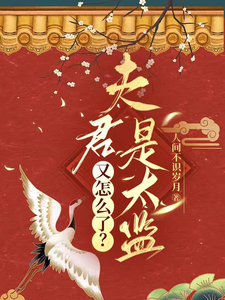Back in the office, Du Tang handed the village documents to Nan Sheng. The town mayor had instructed him to assist her while deferring to her opinions.
The records listed the village committee members and population counts, but more detailed information required firsthand knowledge.
Nan Sheng extended an olive branch first. "Comrade Du Tang, I’ve just started working at the town government and am unfamiliar with the villages. Why don’t you take the lead while I assist? Does that sound alright?"
Du Tang seemed momentarily surprised but quickly responded, "We’re colleagues—we can discuss and collaborate. How about we head to the ice factory now to record the output?"
"Agreed!"
Both had bicycles, so the ride to the factory took less than ten minutes. The facility was a repurposed abandoned building from an old popsicle factory, recently refurbished under the mayor’s orders for ice production.
The factory was bustling, and the two waited half an hour before meeting the manager, a retired soldier who answered their questions with military efficiency.
"Apologies—we’re short-staffed, so I have to pitch in. Currently, we produce about one ton of ice daily, with nearly four tons in storage ready for distribution."
He explained that the building’s insulation was poor, leading to melting losses. To reduce saltpeter usage, they also reused materials, which added to the workload.
Nan Sheng and Du Tang exchanged a glance, satisfied with the output—enough for the villagers. Back at the office, they only needed to calculate allocations for each village.
However, Nan Sheng’s earlier idea of storing melted ice water was scrapped.
Du Tang proved highly capable, with deep knowledge of every village. When distributing ice, they prioritized villages with more elderly, women, and children.
Nan Sheng remarked, "If we supply the full amount upfront, some villages might later demand more, leaving the government in a tough spot."
Du Tang agreed. "Then let’s start with reduced quantities and adjust based on feedback."
Their collaboration left a positive impression—both were diligent, detail-oriented, clear-thinking, and efficient.
A great work partnership!
Before lunch, they submitted their plan to Mayor Yu Feng, who raised concerns about transportation. Nan Sheng had a solution:
"Every village has carpenters. They can replicate the popsicle storage boxes—thicker wood for better insulation, wrapped in quilts or padded coats. That’ll preserve the ice for a day."
Yu Feng was pleased with her attitude, confident he’d chosen the right person.
"Nan Sheng, do well here, and I’ll make sure you’re rewarded."
Flustered, she waved it off. "You flatter me, sir. Du Tang knows the villages far better—I only assisted."
Du Tang humbly credited their joint effort.
At lunch, Nan Sheng forgot her lunchbox and borrowed one from the kitchen. Du Tang asked Jia Bing to guide her, but Jia Bing got distracted chatting with a pretty coworker.
Unfazed, Nan Sheng borrowed a box, served herself, and sat alone.
The cafeteria served cabbage dumplings with a hint of meat. After eating, she washed the box thoroughly to avoid inconveniencing others.
That afternoon, with no tasks assigned, Nan Sheng reviewed the documents, memorizing the names of village heads, team leaders, and accountants.
Huaishan Town oversaw twenty-one villages—no small feat. Fortunately, the mayor often delegated tasks to Du Tang, giving her time to learn.
Tired from studying, she closed her eyes briefly.
Others slacked off too, especially in the Revolutionary Committee, where two clerks idled.
The committee director’s power had been sidelined by the mayor and party secretary, leaving his team with little to do.
But the records noted that after the drought, they’d regain some authority by sending personnel to villages. Building connections now was crucial.
Her first day ended smoothly. Returning home, she found dinner ready—and her brother Mingli waiting, beaming as he handed her a chilled bowl of sweet water, looking like he’d won the lottery.
"Sis, you’re amazing! Working at the town government? When I tell Mom and Dad, they’ll faint from shock."
She laughed at his exaggeration but corrected, "Crabs walk sideways—our parents won’t copy them."
After dinner, the heat made sleep impossible, so the family chatted under the eaves.
Mingli shared news from their grandmother’s side: "Mom visited Uncle Zhong Min to discuss their care. He agreed without hesitation."
Zhong Min’s family struggled—raising two school-age boys who could empty a pot of cornmeal porridge in one meal.
With four mouths to feed, adding two elderly relatives pushed his wife to the brink. She’d shown their mother the nearly empty grain cabinet:
"Sis, we only had 100+ pounds of grain left. When we heard about the drought, Zhong Min borrowed money to buy 200 more pounds of cornmeal.
The folks’ stock is low too—my sister-in-law just took a bag, leaving under 100 pounds. It’s not that I refuse to care for them, but how long will this last six people?"
Zhong Yanyan understood her sister-in-law’s distress—she’d always treated the elders well, sharing treats during holidays.
Now, with her sister-in-law taking their parents’ food but splitting their own rations, resentment was natural.
"Don’t worry. I’ve set aside 200+ pounds for them. Mingli will deliver it soon. If more is needed, we’ll figure it out."
Relieved, her sister-in-law relented—they’d all eat together eventually.
Zhong Min, however, had pride. "Sis, as their son, their care is my duty. Don’t worry about the grain—I’ll manage."







